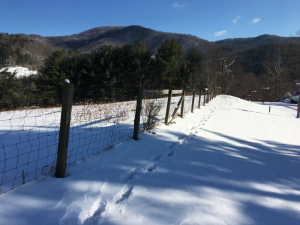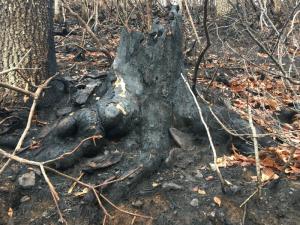Meditations Of Robert Green Ingersoll Part Two

"A New, Secular Scripture”
Naturalist John Burroughs wrote, “The book of nature is like a page written over or printed upon. . .in many different languages. . . We all read the large type [with appreciation], but only the students and lovers of nature read the fine lines and the footnotes.” (Leaf and Tendril, 1908). John Muir spoke of “Nature’s Bible” and radical reformer Frances Wright, in her lectures in 1829, shocked her audience with the words: “The true bible is the book of nature.” And, of course, Thomas Paine, that old rascal of the Age of Reason, said there was one great sacred text above and beyond all: “Search not the book called the Scripture, which any human hand might make, but the Scripture called the Creation.”

Robert Ingersoll was an avid reader of that universal text. Raised by his preacher father in the “burned over” district of New York, where tent revivals ran through like wildfires, he learned his Bible stories from a young age. Like Muir, he fairly absorbed holy writ until it saturated his mind. But also like his Scottish comrade, he found delight in another, more Paine-like, book. This one presents a more earthly gospel.
Ingersoll learned to read a new scripture written by and for Nature-centered humanity. He naturally discovered that wisdom is wisdom no matter where it arises, whether from Science, Philosophy or even distilled Religion. The “fine lines and footnotes” in the world around him supplied ample material to preach a fresh bible of knowledge, wonder, and liberation from ancient books and beliefs.
The following passages are plucked like ripe fruit from his incisive essay on heretics— those who choose the unorthodox way, who choose to read another scripture, another bible, and then take the next courageous step: they choose to write their own. It’s a stunning call to read and to write and to think.
Not really so new, is it?
“The church has burned honesty and rewarded hypocrisy. And all this, because it was commanded by a book—a book that men had been taught implicitly to believe, long before they knew one word that was in it. . . . How long, O how long will [humankind] worship a book?. . . .
By this time the whole world should know that the real bible has not yet been written, but is being written, and that it will never be finished until the race begins its downward march, or ceases to exist.
 The real bible is not the work of inspired men, nor prophets, nor apostles, nor evangelists, nor of Christs. Every [person] who finds a fact, adds, as it were, a word to this great book. It is not attested by prophecy, by miracles or signs. It makes no appeal to faith, to ignorance, to credulity or fear. It has no punishment for unbelief, and no reward for hypocrisy. It appeals to [humankind] in the name of demonstration. It has nothing to conceal. It has no fear of being read, of being contradicted, of being investigated and understood. It does not pretend to be holy, or sacred; it simply claims to be true. It challenges the scrutiny of all, and implores every reader to verify every line for himself. It is incapable of being blasphemed. This book appeals to all the surroundings of [human beings]. Each thing that exists testifies of its perfection. The earth, with its heart of fire and crowns of snow; with its forests and plains, its rocks and seas; with its every wave and cloud; with its every leaf and bud and flower, confirms its every word, and the solemn stars, shining in the infinite abysses, are the eternal witnesses of its truth.”
The real bible is not the work of inspired men, nor prophets, nor apostles, nor evangelists, nor of Christs. Every [person] who finds a fact, adds, as it were, a word to this great book. It is not attested by prophecy, by miracles or signs. It makes no appeal to faith, to ignorance, to credulity or fear. It has no punishment for unbelief, and no reward for hypocrisy. It appeals to [humankind] in the name of demonstration. It has nothing to conceal. It has no fear of being read, of being contradicted, of being investigated and understood. It does not pretend to be holy, or sacred; it simply claims to be true. It challenges the scrutiny of all, and implores every reader to verify every line for himself. It is incapable of being blasphemed. This book appeals to all the surroundings of [human beings]. Each thing that exists testifies of its perfection. The earth, with its heart of fire and crowns of snow; with its forests and plains, its rocks and seas; with its every wave and cloud; with its every leaf and bud and flower, confirms its every word, and the solemn stars, shining in the infinite abysses, are the eternal witnesses of its truth.”
from “Heretics and Heresies” (1880)
Recommended
Nor’easter
Post-Op Appointment With My Father
Cedar Valley Youth Poet Laureate | Fall 2024 Workshop





